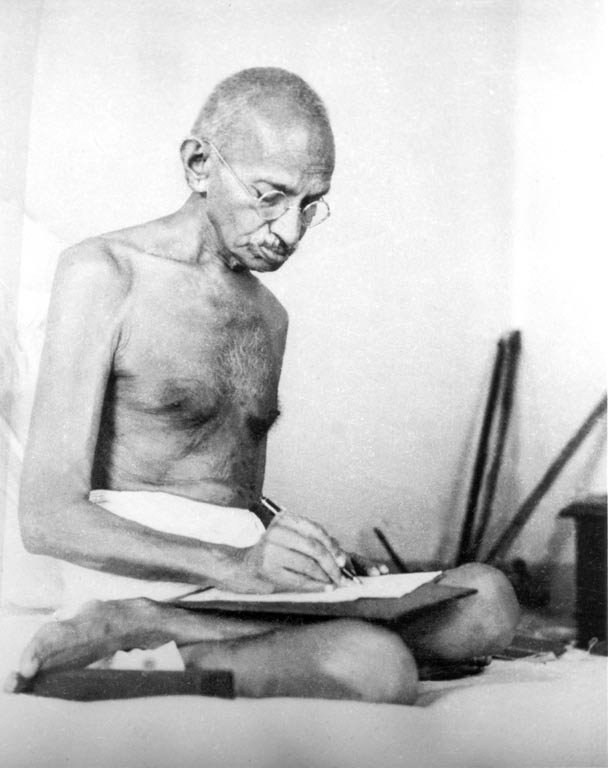On January 30, 1948, the world mourned the loss of one of its greatest advocates for peace and nonviolence, Mohandas Karamchand Gandhi, affectionately known as Mahatma Gandhi. His assassination sent shockwaves through India and the rest of the world, leaving many to ponder the question: What if Gandhi had not been assassinated?
Terry Bailey considers this question.
Mahatma Gandhi in 1942.
Before delving into the hypothetical, it's crucial to understand the profound impact Gandhi had during his lifetime. His philosophy of nonviolent resistance, or Satyagraha, not only played a major role in India's independence movement but also inspired countless civil rights and freedom movements worldwide. Gandhi's teachings on ahimsa, (nonviolence) and his emphasis on social justice continue to resonate with people across generations.
If Gandhi had not been assassinated, his presence would have significantly influenced post-independence India's political landscape. At the time of his death, India was grappling with religious and political tensions, particularly between Hindus and Muslims. Gandhi's vision for a united, pluralistic India would have likely shaped policies and initiatives aimed at fostering harmony and inclusivity.
Gandhi was a staunch advocate for economic self-sufficiency and rural development. His promotion of khadi, (hand-spun cloth) and cottage industries was aimed to empower rural communities and reduce dependence on imported goods. Had Gandhi lived longer, he might have spearheaded initiatives to strengthen India's rural economy and bridge the urban-rural divide, emphasizing sustainable development practices.
Reforms
Another area where Gandhi's prolonged presence could have made a significant impact is in social reforms and equality. He championed the rights of marginalized communities, including Dalits, (formerly known as untouchables) and women. Gandhi's advocacy for social justice would likely have continued, influencing policies and societal norms to address caste discrimination, gender inequality, and other social injustices.
Beyond India's borders, Gandhi's influence on international relations and peace building would have been profound. His principles of nonviolence and dialogue could have played a crucial role in resolving conflicts and promoting peaceful coexistence among nations. Gandhi's leadership on global platforms would have amplified calls for disarmament, human rights, and environmental stewardship.
However, it's essential to acknowledge that Gandhi's continued presence would not have been without challenges and opposition. His ideologies faced criticism from various quarters, including radical factions and those advocating for more aggressive approaches to governance and conflict resolution. Navigating these differing viewpoints while staying true to his principles would have been a delicate balance for Gandhi.
Legacy
Even without the hypothetical scenario of Gandhi surviving beyond 1948, his legacy has endured, albeit in different ways. His teachings and philosophy continue to inspire movements for justice, equality, and peace worldwide. Gandhi's emphasis on individual and collective responsibility for social change still remains relevant in addressing contemporary challenges.
It cannot be more over stated that the assassination of Mahatma Gandhi robbed the world of a visionary leader whose influence extended far beyond his lifetime. Imagining a world where Gandhi had not been assassinated offers interesting insight into the potential trajectories of India's development, global peace efforts, and social justice movements. While we can only speculate on what might have been, Gandhi's teachings continue to guide and inspire people in their quests for a better world, reminding us of the enduring power of nonviolence, truth, and compassion.
Did you find that piece interesting? If so, join us for free by clicking here.







